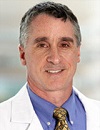
 On Thursday, John Carroll and Dr. David Porter, one of the top investigators on the CAR-T team at the University of Pennsylvania, discussed how this program promises to be a game changer in cancer treatment in the first of a three-part Twitter chat around this year's ASCO conference.
On Thursday, John Carroll and Dr. David Porter, one of the top investigators on the CAR-T team at the University of Pennsylvania, discussed how this program promises to be a game changer in cancer treatment in the first of a three-part Twitter chat around this year's ASCO conference.
SPEAKERS:
John Carroll, Editor-in-Chief, FierceBiotech
David Porter, CAR-T specialist at the University of Pennsylvania
Below is a wrapup of the conversation. This chat has been edited for brevity and clarity.
John Carroll: Could you give our audience a Twitter-worthy glimpse of your work in the field?
David Porter: Sure! It's an exciting time; I've been an oncologist for 20-plus years and seen many new therapies.
We've now treated 80-plus patients in our trials with CAR-T cells, and are seeing remissions stretching toward 4 years for first patients.
This is in patients who had run out of conventional options, often not eligible for BMT or don't have donor.
This therapy, CTL019, could change the paradigm for treating patients with refractory leukemia.
JC: How does this technology work?
DP: Tough to tweet succinctly! It is a true personalized therapy, made for each patient. First, we remove some of patient's own T cells.
Then we genetically modify the patient's own immune cells with new DNA to program them to attack a specific target on cancer cells
The new cells are infused back into the patient. The cells multiply in the body and hunt for cancer cells, then guard for recurrence.
JC: You'll be presenting an education session on CAR-T. Could you give us the particulars on that session? Where and when?
DP: I will present in education session for CLL novel therapies @ 1:15 CT 6/2 in E450 at McC Place.
JC: I'll be there. What have you seen in the early-stage data that makes this program a stand-out?
DP: In our @PennCancer trials, the gene-modified cells can expand in the body up to 10,000 times, inducing long-lasting remissions.
Cells can also survive for years--we've detected them 3-plus years after infusion and have evidence they remain active/may prevent relapse.
JC: Back in 2010, this treatment approach wiped out leukemia in an advanced patient. How is that patient doing now?
DP: Our 1st patient remains in remission, very healthy, nearly 4 years after treatment. He is a true pioneer and we are grateful to him.
The first child treated with Penn CAR T cells, at @ChildrensPhila, had ALL and just celebrated her 2nd year cancer-free.
JC: Which cancers could this treatment be used for?
DP: Also trials @PennMedicine with CAR T cells for NHL and myeloma--also breast cancer, pancreatic cancer and mesothelioma.
Other trials planned; trick is finding the right target on cancer cells to avoid damaging healthy cells that carry same protein.
Patient safety = top priority. CRS is a known response to this investigative treatment; we have strategy to monitor for/treat patients who get it.
Follower Queries:
@MichaelSMagee: Do you think there will be a clear winning costimulatory signal in the CAR, CD28 vs 4-1BB, or even others like OX40, CD27 etc.? And will these be a requirement for new antigens moving forward in Phase I studies?
DP: Defining the best costimulatory signal will be critical. Looking forward to results of testing, no comparative trials yet.
@KUhlendorf: Thx for your dedication, Dr. Porter. Can you describe the collaborative nature of your work--Partnerships, etc.?
DP: We have an alliance with @Novartis to further develop this therapy, CTL019. Great collaborators @PennMedicine, especially Carl June.
More info on the other two chats in the series can be found here. These chats are sponsored by Covance.